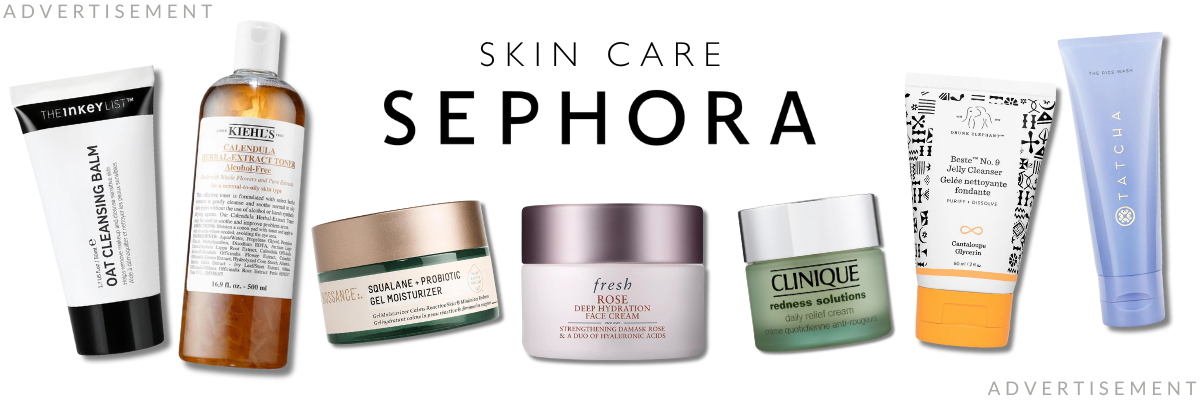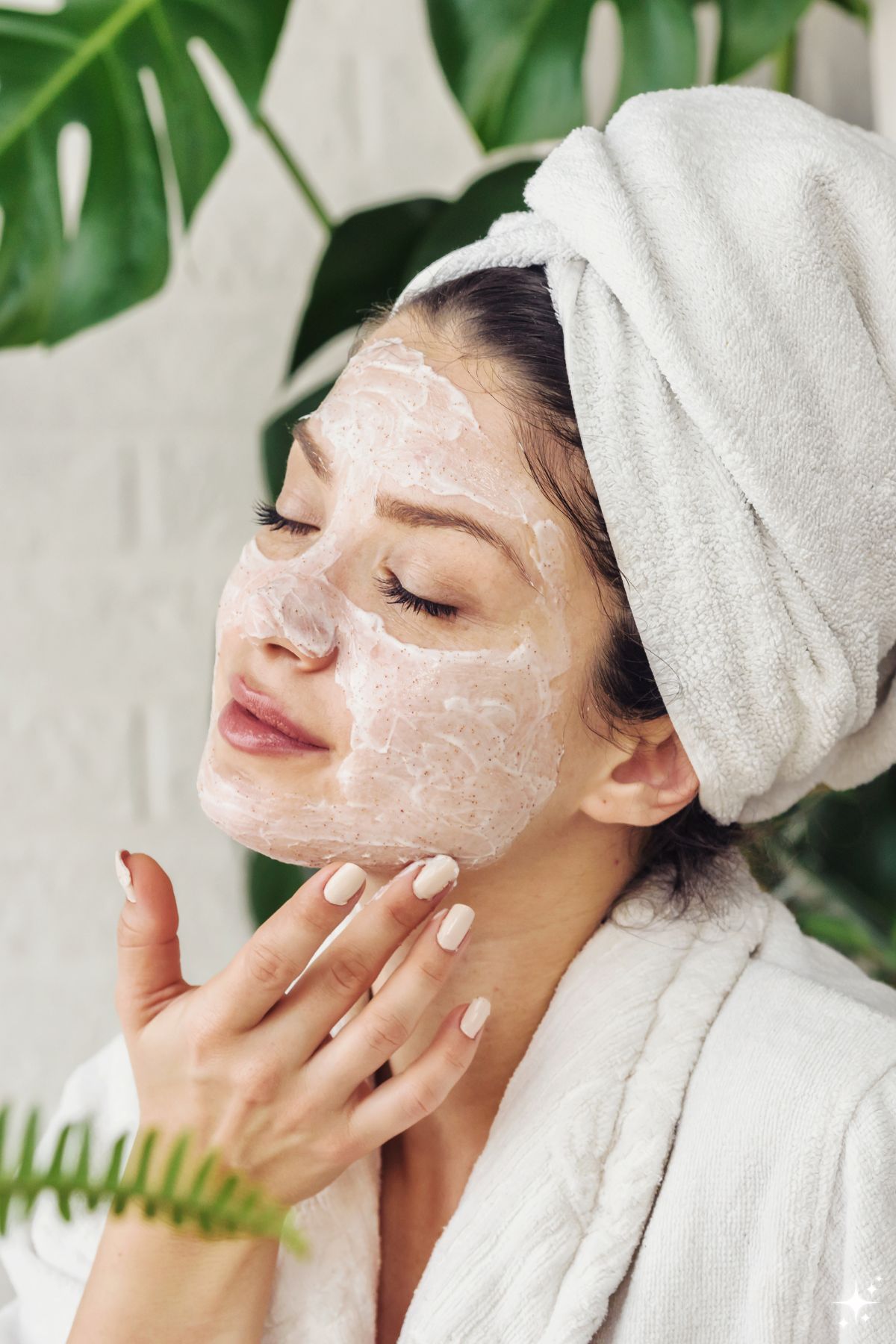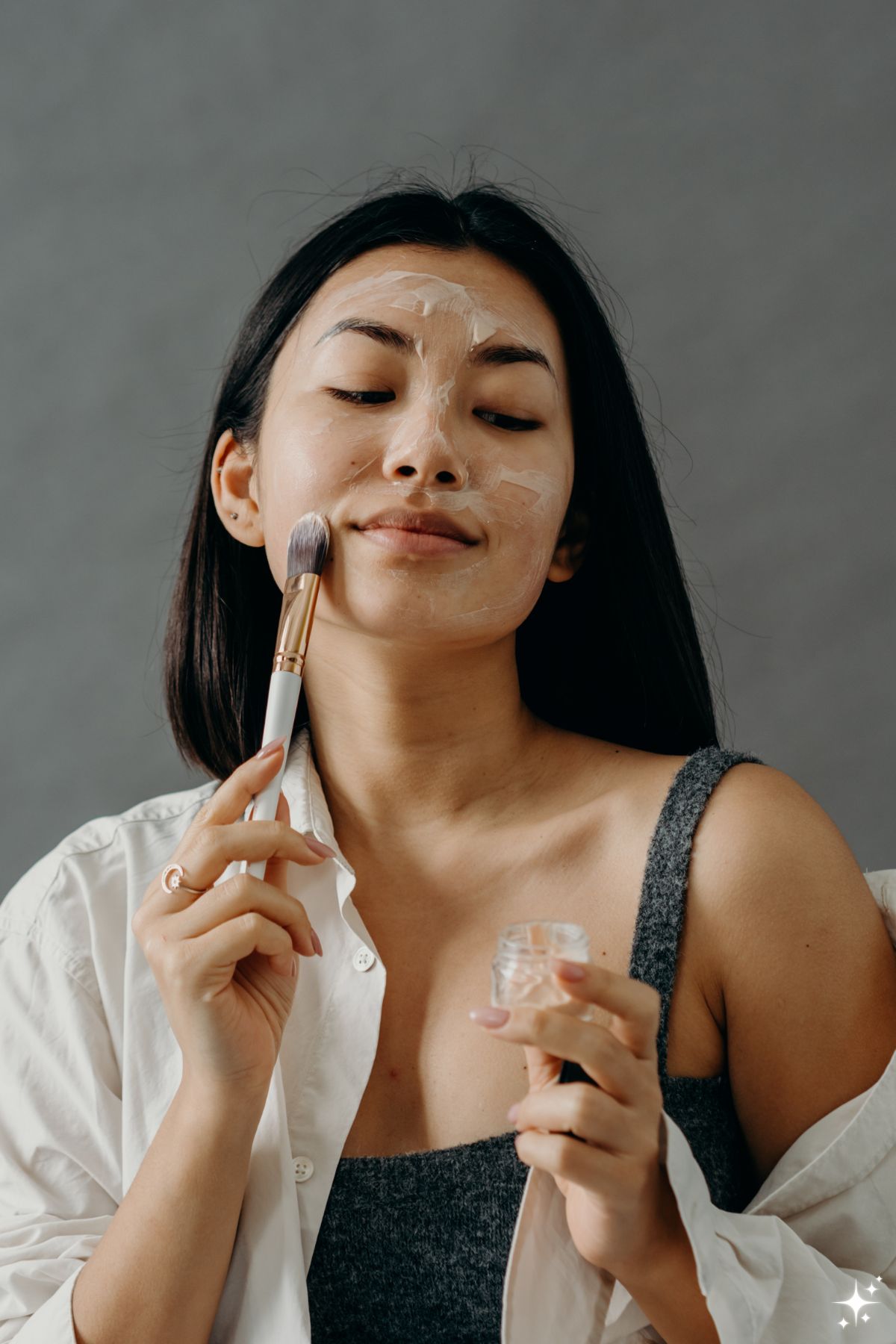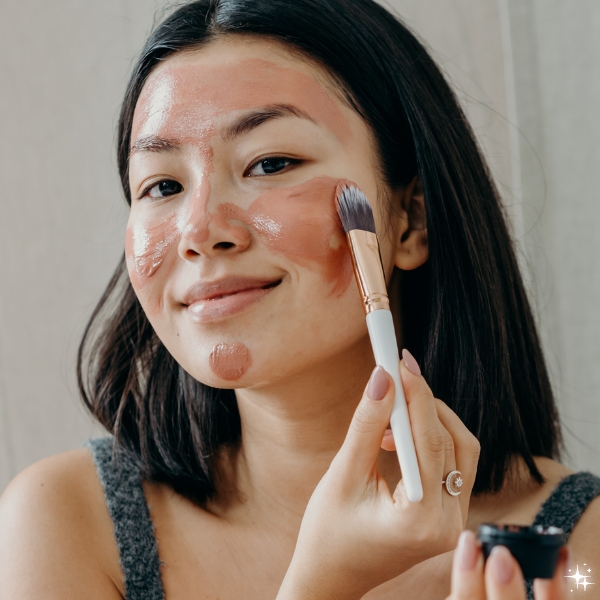Sensitive Skin Product Labels. Demystifying Sensitive Skin Product Labels: Your Ultimate Guide. From Hypoallergenic to pH-Balanced: Making Sense of Sensitive Skin Labels. Empower Your Skincare Journey.
This site contains affiliate links. For more info, please see our full disclosure.
When you have sensitive skin, reading skincare and beauty product labels carefully is crucial to avoid irritation and ensure your skin stays healthy and happy.
Navigating the vast array of skincare options can be overwhelming, especially when you’re dealing with sensitivity concerns. But fear not! Understanding product labels is key to finding the perfect skincare regimen that caters to your skin’s unique needs.
Sensitive Skin Product Labels
Hypoallergenic
Look for products labeled “hypoallergenic,” as they are formulated to minimize the risk of allergic reactions. These products are typically free from common allergens.
Dermatologists often recommend hypoallergenic items because they’re designed with fewer irritants, making them gentler on your skin. According to the American Academy of Dermatology (AAD), using hypoallergenic products can significantly reduce the likelihood of redness, itching, and breakouts.

Fragrance-Free
Fragrances, even natural ones, can irritate sensitive skin. Opt for “fragrance-free” or “unscented” products to avoid potential irritants.
It means the product contains no added perfumes or scents, which can often be a source of irritation. Dermatologists frequently recommend fragrance-free options for those with sensitive skin to help avoid redness, itching, and other reactions.
Products labeled as fragrance-free are less likely to cause skin irritation because they lack the potentially harsh chemicals used to create scents.
Dr. Bruce A. Brod, a dermatologist and clinical professor, emphasizes the importance of choosing fragrance-free products to maintain skin health. Always remember to check with your dermatologist to find the best products for your skin type.
No Alcohol
Avoid products with alcohol (like ethanol or isopropyl alcohol) which can be drying and irritating. Instead, look for “alcohol-free” options.
It means the product is free from alcohols like ethanol or isopropyl alcohol, which can be drying and irritating. Dermatologist Dr. Whitney Bowe explains that alcohol-free products help maintain your skin’s natural moisture barrier, reducing the risk of dryness and irritation. This is especially important for sensitive skin, which can react more intensely to harsh ingredients. Always check the ingredient list to ensure you’re choosing the gentlest option for your skin.

Paraben-Free (Sensitive Skin Product Labels)
Parabens can sometimes cause irritation or allergic reactions. Seek out products that are “paraben-free” to reduce the risk of sensitivity.
The product doesn’t contain parabens, which are preservatives commonly used in cosmetics but can sometimes cause irritation or allergic reactions. Dermatologist Dr. Leslie Baumann points out that paraben-free products are often gentler on sensitive skin, reducing the risk of redness and breakouts. By avoiding parabens, you’re opting for a more skin-friendly option that helps maintain your skin’s health and balance.
Essential Oils-Free
While natural, essential oils can be potent irritants. Products labeled “essential oils-free” are a safer bet for sensitive skin.
Products don’t contain essential oils, which can sometimes trigger irritation or allergic reactions. Dermatologist Dr. Heather Woolery-Lloyd explains that essential oils, while natural, can be quite potent and potentially harsh on sensitive skin. By opting for essential oils-free products, you’re reducing the risk of redness, itching, and other adverse reactions.

Non-Comedogenic
Non-comedogenic products are formulated not to clog pores, reducing the risk of breakouts and irritation. Perfect for sensitive, acne-prone skin.
It means the product is formulated to not clog pores, which helps prevent breakouts and irritation. Dermatologist Dr. Debra Jaliman highlights that non-comedogenic products are great for sensitive skin because they reduce the likelihood of acne and blackheads. This is especially important for keeping your skin clear and calm. Always look for non-comedogenic labels to ensure you’re using products that won’t aggravate your skin.
Minimal Ingredients
Less is more when it comes to sensitive skin. Products with a short, simple ingredient list are less likely to contain potential irritants.
The product contains fewer ingredients, reducing the chance of irritation and allergic reactions. Dermatologist Dr. Shari Marchbein suggests that products with minimal ingredients are often better for sensitive skin because they limit exposure to potential irritants. By choosing these products, you’re giving your skin a break from unnecessary additives and chemicals. Always check the ingredient list to find the simplest and gentlest options for your skincare routine.
pH-Balanced (Sensitive Skin Product Labels)
Look for “pH-balanced” products that match the natural pH of your skin, helping to maintain its barrier function and reduce irritation.
These products are formulated to match your skin’s natural pH level, which helps maintain its protective barrier. Dermatologist Dr. Whitney Bowe explains that pH-balanced products are especially beneficial for sensitive skin because they prevent irritation and dryness. By using pH-balanced skincare, you’re helping your skin stay healthy and resilient.

Dermatologist-Tested
Products that are “dermatologist-tested” have undergone testing to ensure they are safe for skin use, providing an extra layer of reassurance.
Dermatologist Dr. Ava Shamban points out that dermatologist-tested products are carefully evaluated to minimize the risk of irritation and adverse reactions. By choosing these products, you’re opting for skincare that has been rigorously assessed for sensitivity.

Soothing Ingredients
Seek out products containing soothing and anti-inflammatory ingredients like aloe vera, chamomile, colloidal oatmeal, and calendula.
They’re ingredients specifically chosen for their calming and gentle properties, perfect for soothing irritation and redness. Dermatologist Dr. Howard Sobel emphasizes that incorporating soothing ingredients into your skincare routine can help alleviate discomfort and promote a healthier complexion. Look for ingredients like aloe vera, chamomile, and oat extract, known for their anti-inflammatory and hydrating benefits. By incorporating these ingredients, you’re giving your sensitive skin the TLC it deserves.
Free from Sulfates
Sulfates can strip the skin of its natural oils, leading to dryness and irritation. Choose “sulfate-free” products for gentler cleansing.
Sulfates are harsh cleansing agents that can strip the skin of its natural oils and cause irritation. Dermatologist Dr. Jessica Wu explains that sulfates can be particularly problematic for sensitive skin, leading to dryness, redness, and inflammation. By opting for sulfate-free products, you’re choosing a gentler alternative that helps maintain your skin’s delicate balance. Look for ingredients like sodium lauryl sulfate (SLS) and sodium laureth sulfate (SLES) on the label to ensure your products are sulfate-free.
No Synthetic Dyes (Sensitive Skin Product Labels)
Synthetic dyes can be irritating to sensitive skin. Opt for products that are free from artificial colors.
It means the product is free from artificial colorants, which can often be a source of irritation and allergic reactions. Dermatologist Dr. Nina Desai points out that synthetic dyes are commonly used in cosmetics and skincare products but can be harsh on sensitive skin. By choosing products without synthetic dyes, you’re reducing the risk of redness, itching, and other adverse reactions. Look for natural alternatives like plant-based pigments or mineral-based colors in your skincare and makeup.

Patch Test
If you’re unsure about a product, look for ones that recommend doing a patch test. This can help you avoid a full-face reaction.
It’s a simple yet essential method to determine how your skin might react to a new product. Dermatologist Dr. Karen Kim recommends applying a small amount of the product to a discreet area of your skin, like your inner arm or behind your ear, and waiting to see if any irritation occurs. This way, you can gauge whether the product is suitable for your skin before using it more extensively. Patch testing is especially crucial for individuals with sensitive skin, as it helps avoid potential allergic reactions and irritation.
Organic or Natural Labels
While not a guarantee, organic or natural products often have fewer harsh chemicals. However, always check for potential allergens.
These labels indicate that the product contains ingredients sourced from nature without synthetic additives or harsh chemicals. Dermatologist Dr. Maya Elious explains that organic or natural products are often gentler on sensitive skin, as they avoid potentially irritating ingredients commonly found in conventional skincare.
By choosing products with these labels, you’re opting for a more wholesome and skin-friendly option that supports your skin’s health and well-being. Look for certifications like USDA Organic or Ecocert to ensure the product meets stringent standards for purity and sustainability.

Packaging and Expiry Date
Ensure the packaging is intact and check the expiry date. Old or contaminated products can cause irritation regardless of their ingredients.
Packaging plays a crucial role in protecting skincare products from contamination and degradation, ensuring their efficacy and safety. Dermatologist Dr. Olivia Tan recommends opting for products in opaque or airtight packaging to prevent exposure to light and air, which can degrade active ingredients and increase the risk of irritation.
Additionally, checking the expiry date is essential to ensure the product is still potent and effective. Using expired products can lead to decreased efficacy and potential skin reactions, especially for those with sensitive skin. Always pay attention to packaging and expiry dates to maximize the benefits of your skincare routine and maintain a healthy complexion.

Benefits of Choosing the Right Products (Sensitive Skin Product Labels)
- Calm and Comfortable Skin: Reduces redness, itching, and irritation.
- Healthy Skin Barrier: Maintains the skin’s natural protective barrier, preventing dryness and breakouts.
- Radiant Appearance: Proper care results in smoother, more radiant skin.
- Reduced Risk of Allergies: Minimizes exposure to common allergens and irritants.
Products to Avoid Using Together
Avoid layering products with strong active ingredients, like retinoids and strong acids (AHAs/BHAs), as they can be too harsh when combined. Also, some products combined cancel out what it’s meant to do for your skin. Stick to simple routines and introduce new products gradually.
For example, using products containing retinol or benzoyl peroxide together can lead to excessive dryness and irritation. It’s also essential to avoid using exfoliating acids, like glycolic acid or salicylic acid, in conjunction with potent vitamin C serums, as they can cause skin sensitivity and redness.
By being mindful of which products you’re using together, you can prevent potential adverse reactions and maintain a happy, healthy complexion. Always consult with a dermatologist to ensure your skincare routine is tailored to your specific needs and concerns.
Disclaimer for Sensitive Skin Product Labels
Every skin type is different. Always consult a dermatologist if you’re unsure about trying new products. Doing a patch test can also help ensure a product suits your sensitive skin.









